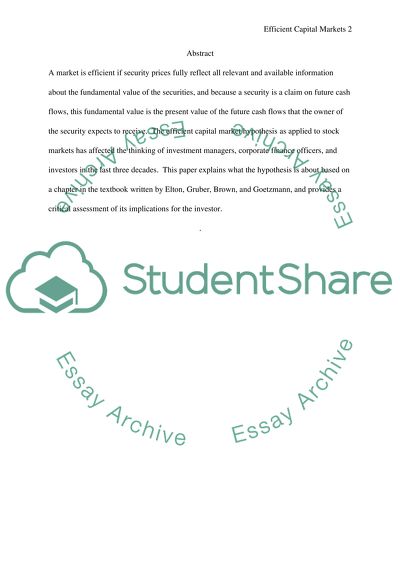Cite this document
(Efficient Markets Hypothesis Term Paper Example | Topics and Well Written Essays - 2000 words, n.d.)
Efficient Markets Hypothesis Term Paper Example | Topics and Well Written Essays - 2000 words. Retrieved from https://studentshare.org/marketing/1501358-stock-markets
Efficient Markets Hypothesis Term Paper Example | Topics and Well Written Essays - 2000 words. Retrieved from https://studentshare.org/marketing/1501358-stock-markets
(Efficient Markets Hypothesis Term Paper Example | Topics and Well Written Essays - 2000 Words)
Efficient Markets Hypothesis Term Paper Example | Topics and Well Written Essays - 2000 Words. https://studentshare.org/marketing/1501358-stock-markets.
Efficient Markets Hypothesis Term Paper Example | Topics and Well Written Essays - 2000 Words. https://studentshare.org/marketing/1501358-stock-markets.
“Efficient Markets Hypothesis Term Paper Example | Topics and Well Written Essays - 2000 Words”, n.d. https://studentshare.org/marketing/1501358-stock-markets.


